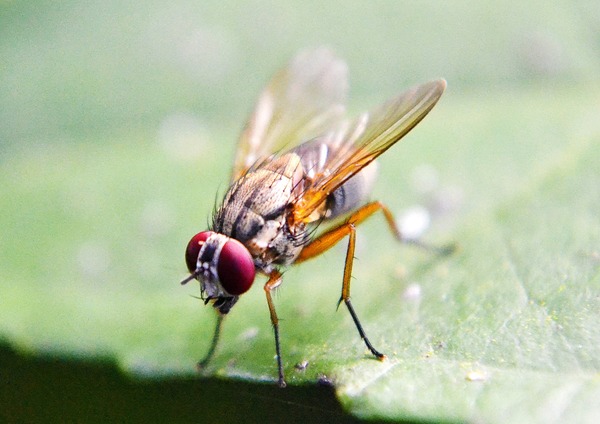The Effect of the Human MeCP2 gene on Drosophila melanogaster behavior and p53 inhibition as a model for Rett Syndrome
(1) Evergreen Valley High School, San Jose, California, (2) Schmahl Science Workshops, San Jose, California
https://doi.org/10.59720/20-053
The purpose of this study was to explore the effect of introducing the human methyl CPG binding protein 2 gene (MeCP2) into the Drosophila melanogaster genome, examine how it would affect protein levels of p53, and test how inhibiting p53 with pifithrin-alpha would affect behavioral and physical patterns in fruit flies. One goal was to observe if the symptoms of Rett Syndrome, a neurodegenerative disease in humans, are reflected in Drosophila melanogaster. This was achieved by differentiating the behavior and physical aspects of wild-type flies from flies expressing the full-length MeCP2 gene and the mutated MeCP2 gene (R106W). Differences in eye structure, climbing (the use of locomotor skills), geotaxis, as well as differences in the flies’ abilities to fly were analyzed. In addition, after these series of tests, the MeCP2 protein and the p53 protein, endogenous to Drosophila, were extracted and their levels were compared in each of the populations of flies. Then, after the Drosophila consumed pifithrin-alpha hydrobromide, their behavior, physical appearance, and protein levels were again monitored. After conducting these experiments, the effects of full-length and mutant MeCP2 on Drosophila melanogaster’s psychomotor skills were analyzed, along with their effects on how the treatment of pifithrin-alpha affected the level of MeCP2 and p53 in the various populations of flies. In conclusion, some of the Rett Syndrome symptoms were recapitulated in Drosophila, and a subset of those were partially ameliorated by the introduction of pifithrin-alpha.
This article has been tagged with: